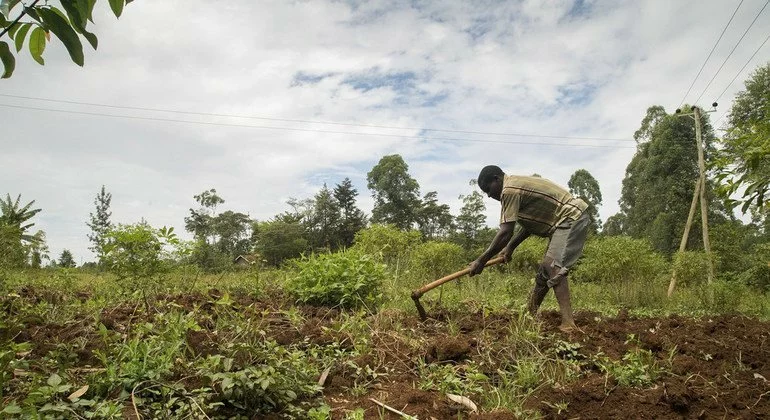World over, there is a renewed effort to boost food production to feed the growing population, as the agenda to end hunger, achieve food security and improved nutrition remain at the heart of the sustainable development goals.
In Nigeria, the federal government has been developing agricultural policies and strategies from Operation Feed the Nation in mid 70s to Green Revolution in the early 80s, National Policy on Food and Nutrition designed in 2001, the recent Agricultural Transformation Agenda and Agricultural Promotion Policy aimed at ensuring food and nutrition security.
However, despite these policies, more than 14 million people in Nigeria, including children are reported to be malnourished and about 25.3 million Nigerians across 26 states and the Federal Capital Territory (FCT) are projected to face acute food and nutrition insecurity between June and August 2023.
Experts have identified rise in population, insecurity, continue rise in food prices mostly occasioned by increased food demand, diminishing food reserves, crops pest and disease as factors hindering achievement of food security policy goals.
In addition to these factors, is climate change largely resulted in flooding, desertification, drought and erosion. These challenges have contributed to poor conditions for agriculture, land degradation and overall decline in agricultural productivity.
While improved verities, climate resilient crops, disease and pest resistant verities continue to take the centre stage in global efforts to address food security challenges in the face of climate change, a professor of Agronomy at the Ahmadu Bello University Zaria, Salihu Adamu Dadari has advanced for a massive afforestation to reclaim the lost vegetation.
Professor Dadari stated that, with the afforestation model, the vegetation will increase carbon capture and enable crops to harness the benefits of ecosystem for maximum productivity and boost food production.
Afforestation which involves planting trees in areas that haven’t recently had any tree cover, in order to create a forest, help to serve as a method to reduce atmospheric CO2, to increase soil quality, improve water quality and support soil health and fertility.
Experts believe that afforestation is necessary to combat global warming, soil erosion, pollution, maintenance of biodiversity and ecological balances as it is known to increase the soil quality and organic carbon levels into the soil to avoid desertification.
To drive this, professor Dadari added that Nigeria must embark on massive afforestation especially in moderate rainfall areas of the country and the Niger Delta regions due to activities of oil exploration and environmental degradation.
He said, “Nigeria with the population of over 200 million people need to eat, drink and have balanced diet but the challenges facing the agricultural sector are in two dimension, the climate change and insecurity and all of them are operating simultaneously but in our own effort which has to do first, climate change and the effect and despite that fact, we have also contributed to that in the sense that we always leave the ozone eroded through human activities such as exploration of oil, burning of tires, burning of forest and cutting of trees for charcoal. All this have affected atmosphere and created unpredictable rainfall.
“All these problems can only be addressed through planting of trees and managing of the forest as you cannot run a country under hunger, so we expect all Nigerians to put their hands on desk and support government from all ramification to make sure our crops are protected against climate change through afforestation to salvage the situation.”





